Around the world, more than 150 million users have booked over one billion reservations through Airbnb. Every second, six guests check into an Airbnb somewhere on the planet.
Though booking an Airbnb short-term rental isn't always the best deal for short stays or small groups, you can save some money compared to hotels for longer trips or stays with larger groups.
 It's a good idea to book your Airbnb well in advance, but you might be hesitant to book a stay if you're concerned about when they will charge your credit card. The payment will be charged when the reservation is confirmed, even when you use Instant Book.
It's a good idea to book your Airbnb well in advance, but you might be hesitant to book a stay if you're concerned about when they will charge your credit card. The payment will be charged when the reservation is confirmed, even when you use Instant Book.How much you will be charged depends on whether or not you've chosen to pay in a one-time payment or in installments. Long-term rentals of more than 28 days will require an initial one-month payment and then will be charged monthly after that.
Airbnb will charge you once your reservation is confirmed. This isn't just the case for regular bookings but also for Instant Book, which is a listing that lets you reserve a place immediately without having to wait for approval from the host.

Hosts won't receive payment until 24 hours after you've checked in, no matter how far in advance you book your accommodations.
As we'll discuss in the next section, if you choose to pay in installments rather than in a one-time payment, you will be charged an initial deposit upon confirmation of your booking. Then the subsequent payment dates will be listed during the checkout process and can also later be found in your Airbnb account.
Once your accommodation has been booked, there are two primary ways that you can pay:
You will find that you can use a payment plan on most listings. This means that you can pay an upfront deposit and then make the rest of the payments on dates down the road. These days will be listed as a part of the checkout process.

If you decide to pay for the whole thing in one payment, the full balance of the booking will be charged once the host confirms your stay.
Even though the booking will be charged upon confirmation by the host, it's worth noting that the host actually doesn't receive the funds until 24 hours after check-in. This helps to ensure that guests have the opportunity to resolve issues once they are there. Basically, both guests and hosts have the chance to make sure that everything pans out as expected before money exchanges hands.
AirBnB accepts a number of different payment methods in the United States, including:
Accepted payment methods are going to depend on the country where you are booking a stay. If you're booking outside of the United States, you'll want to check on the AirBnB site to learn about the acceptable forms of payment.
It violates Airbnb's terms of service to pay in cash, offline, or off-platform (after all, they want to get their cut, right?) You can end up being removed as a user from the site if you violate their terms of service.
Did you choose to pay with a payment plan, and you're wondering how to find out when your card will be charged?
Here are the steps you'll want to take:
Are you planning on booking a rental through Airbnb for more than 28 months? If so, the payment process is a little bit different. Stays of this length are considered long-term reservations.
For extended getaways, the first payment will be made at the same time as the confirmation is processed. This means that you'll want to be ready for your card to be charged as soon as you make the booking. The following payments will be made monthly after the initial month's rent has been made.
Now let's look at some of the most common questions we receive about Airbnb and credit cards to help you plan your next trip.
If you're planning on staying at an Airbnb for an upcoming trip and you've stacked up some credit card points recently, you might be wondering if you can use them toward your stay.
There are three ways that you can cover your next Airbnb booking with credit card points:
If your credit card offers cash-back rewards, you can use your rewards points to get cash sent back to your card or to your bank account. It's also possible that your rewards program will let you buy a specific Airbnb gift card as one of the redemption options.
It's worth noting that there can be some restrictions with Airbnb gift cards. For example, you can't use these gift cards to cover long-term reservations (meaning longer than 28 days.) You also can't use them as second payments if you're paying in two installments or to make changes to existing reservations.
Before you go this route, it's worth looking into how many cents you're receiving per point or mile. This is because turning your points into gift cards or cash back isn't always the best way to get the most bang for your buck, particularly with some of the big travel cards. You might find that there is a better way to use your points or miles to pay for a booking.
That being said, if you don't have travel plans anytime soon and your points are going to expire, spending them on a gift card now can let you take advantage of them before they disappear.
If you have a credit card that is a co-branded hotel card, you will usually only be able to redeem them with a specific hotel chain. However, there are also more general travel cards that come with a lot more flexibility.
While the details are going to vary depending on the card that you have, there are many travel cards that let you redeem miles or points for credit that can end up being put toward a wide range of travel purchases, including Airbnb bookings. This is because payment networks categorize Airbnb payments in the same way they classify hotel purchases.
If you have one of the fancier credit cards out there, it's possible that you will be able to use your annual travel credit in order to save some money on your next Airbnb stay.
For example, the Chase Sapphire Reserve card comes with a travel statement credit of $300 which renews every year on your account anniversary. This is a benefit that cardholders receive automatically and can use on lots of different travel expenses, including Airbnb.
Another instance of this possibility is the U.S. Bank Altitude Reserve Visa Infinite Card, which comes with a $325 annual travel credit. According to U.S. Bank, this credit can be used at Airbnb so long as the purchases are classified as hotel purchases.
The card also comes with an enrollment bonus that is worth $750 in travel expenses if cardholders spend $4,500 in the first 90 days of opening the account.
Both of these cards come at a price, of course-- the Chase Sapphire Reserve has a $550 annual fee, while the U.S. Bank Altitude Reserve Visa Infinite has a $400 annual fee.
In addition to the Chase Sapphire Reserve card discussed in the previous section, there are a number of cards that let you earn extra rewards on Airbnb stays. With some of these points cards, you can even redeem the same rewards you earned using Airbnb to purchase more bookings at Airbnb!
Every dollar you spend on all purchases, including Airbnb purchases, will give you two miles back. You can also redeem your points at Airbnb at the rate of one cent per mile through redemption as a travel statement credit. This is true for Airbnb purchases as well as other travel purchases that qualify.
Here are some more benefits of this card:
On the flip side, here are some of the less desirable features:
You can use the Chase Sapphire Preferred on Airbnb purchases and other travel expenses and earn two points back for every dollar spent. You can pay for Airbnb bookings with points by redeeming the points as cash back, which come in at a rate of one cent per mile.
Some great things about this card include:
Cons include:
Some other cards you'll want to explore if you're planning on staying at a lot of Airbnb's include:
Do you want to clean up your credit report to work towards eligibility for some of these cards with great rewards? Make sure you check out our guides to removing collections, hard inquiries, dispute comments, charge-offs, evictions, and late payments if you are ready to improve your credit.
Managing the calendar of payments for your credit cards and other bills can be a challenge, but when you put in the time and effort to keep your credit file clean it can be a major benefit to your financial life. Using a credit card for things like Airbnb stays can help you build up a positive payment history if you pay your bills on time. This shows creditors and lenders that you are a responsible borrower who will likely pay back your debts.
If you have a thin credit profile, though, or less-than-ideal credit, it can feel overwhelming to achieve a great credit score. Though cleaning up your credit report and building credit might not be anyone's idea of a great time, it's well worth the effort. Over your lifetime, having an excellent credit score can save you tens of thousands of dollars, if not more.
Are you searching for more resources to help you build your credit? If so, make sure you check out our Credit Building Tips blog.
Wealth disparity is immense in America. While many of the world's wealthiest people live here, the average American is highly likely to either be in debt or be one bad day away from it.
Of course, not all debt is created equal. Some debt is expected, normal, or even good, and many Americans are in a position where, despite being in debt on paper, their wealth and income make it easy to wipe out that debt if they choose. Some debt is acceptable or even expected: a mortgage is a huge debt.
 Still, according to reports, as much as 25% of Americans are actively managing their debt, and as many as 61% live paycheck to paycheck, one bad event away from debt.
Still, according to reports, as much as 25% of Americans are actively managing their debt, and as many as 61% live paycheck to paycheck, one bad event away from debt.What are the most common causes of debt? We've pinned down 25 of the most common reasons Americans (and people worldwide) fall into debt.
Few people have the $20,000 to $80,000 it takes to purchase a new or lightly-used vehicle when they need it. Yet, most people in America are engineered to require a car to get around. It's a necessary expense for most of us, and most of us have to go into debt to get it. Worse, the lower your credit, the less favorable your loan terms.

With unfavorable loan terms, the debt can worsen over time with interest and penalties, and more challenging to get rid of your monthly payment.
The average American spends as much as 18 days on the road each year. The NHTSA estimates around 5-6 million auto accidents every year, which equates to around one accident every six seconds. Sure, some collisions are little more than some scraped paint, but others are devastating or fatal. Any accident you walk away from is better than one you don't, but the auto repair bills (and medical bills) can be an instant, near-insurmountable debt.
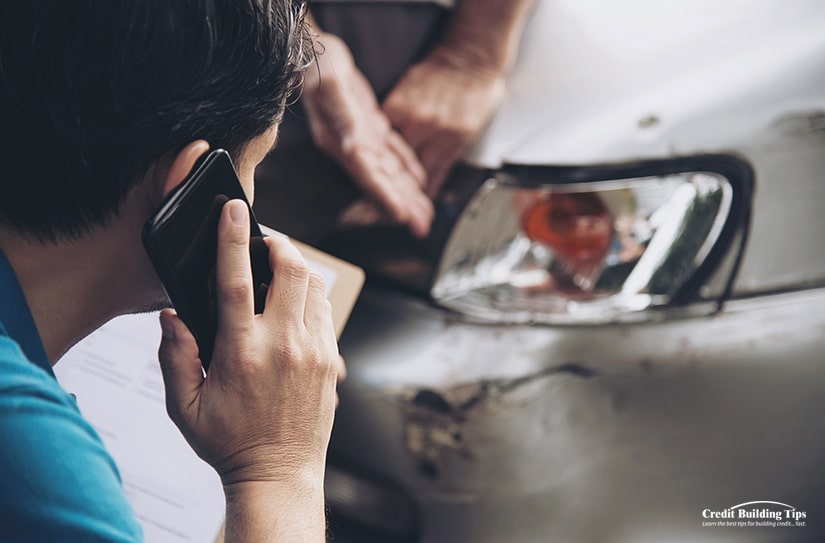
Cars can also be expensive to maintain. Oil changes, new tires, wiper blades, spark plugs, filters, brakes, car washes - these expenses can add up, especially on foreign vehicles or cars with hard-to-find parts. If you suddenly discover that your tires are bald and you rely on your vehicle for work, you may have to put it on your credit card and pay that off over time while focusing on more important expenses.
Everyone needs a place to live. While rental rates are higher now than they have been since 1965, many Americans still buy a house instead of renting an apartment. Making a real estate purchase is a massive debt in the form of a mortgage. It's not bad debt, necessarily, but it is debt nevertheless.
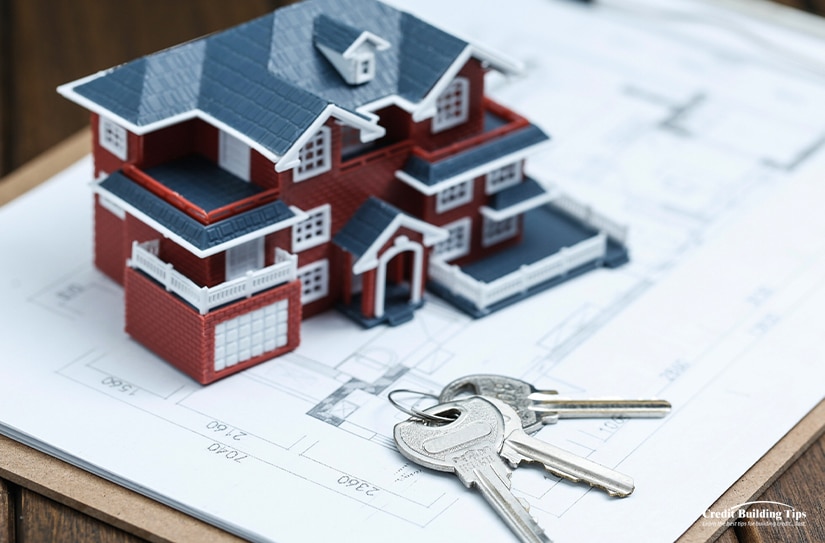
Avoid living above your means, and move into a house with a reasonable mortgage payment. If your mortgage payment gets too challenging to afford, you may consider renting out a room or selling it to purchase a house with a more affordable mortgage payment.
Owning a home is often a giant money sink, and we're not just talking about the mortgage costs, property taxes, homeowners insurance, and other expenses. What happens if a water heater breaks? A furnace? A water leak destroying a wall? Or even just wanting to remodel a room?

These are significant financial investments, and many people go into debt to fix problems when they crop up. Most new homeowners are tempted to buy new furniture and load up their credit cards, but this can be a costly mistake. We can't foresee the unforeseeable, but setting aside an emergency account for home repairs can help ease this burden and reduce your debt.
What might have been a sustainable living situation five or ten years ago may no longer be feasible, but the cost of moving is even worse.
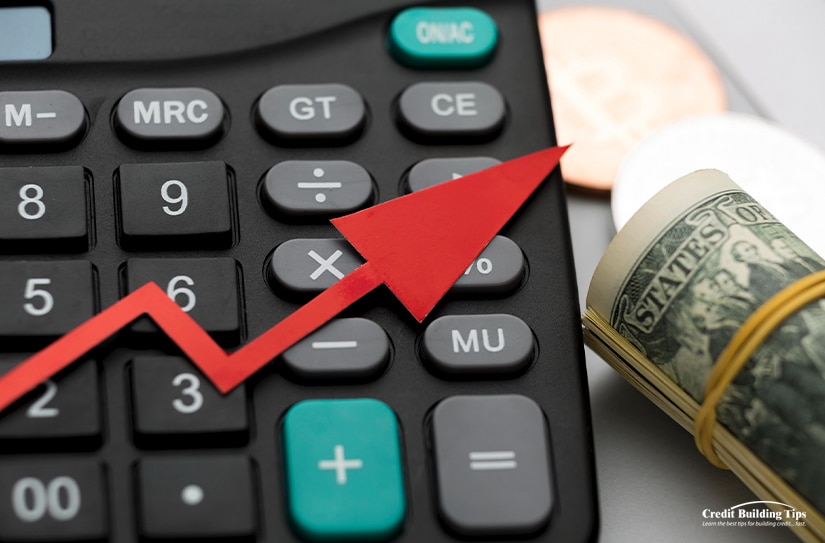
The cost of living has been steadily rising, while wages have stagnated. Thus, credit is used to stay afloat, and debt begins to mount.
The American medical system is among the most expensive anywhere globally while, in some cases, providing some of the least efficient or effective care.

In many cases, it's cheaper to fly to another country, receive medical care, spend time on vacation, and return than it is to receive domestic care. It's no wonder that over half of all Americans carry medical debt.
"Go to college to get a good job" was a common refrain over the decades. In the past, it was even true. Today, higher education is often dramatically more expensive and less valuable than at any point in history.

There are outliers, but in many cases, the cost of receiving a degree is higher than the benefit it brings to wages, leading to a student debt crisis of unprecedented proportions.
Marriage is a significant expense, as many people have a "dream wedding" they want to host, regardless of the cost. Even without such an expense, getting married typically means sharing financial responsibilities, which can mean taking on a spouse's debt.
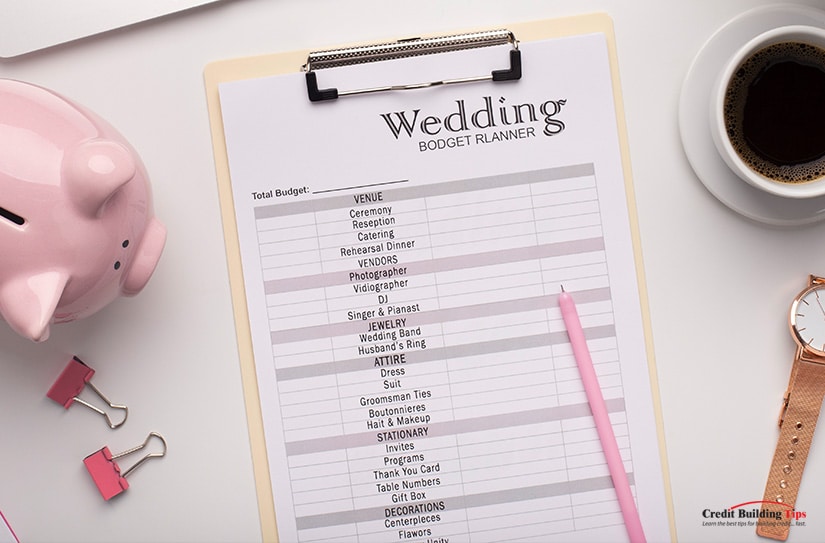
Many couples take on debt during this time, and it's essential to keep an eye on it to keep it from getting out of hand. Honeymoons can get expensive, and of course, you can't forget the cost of a ring or a wedding gift.
Many people underestimate just how expensive it is to raise a child. The estimated cost of raising a child from birth to 18 is estimated to be over $270,000, and for many modern families, the financial burden doesn't end at 18.

Even the hospital visit to give birth can cost tens of thousands of dollars. Unexpected expenses can end up on the credit card, and credit card debt can quickly grow out of control.
The separation of a couple brings with it any number of financial burdens. A contentious divorce brings in legal fees and more.

Even an amicable divorce can lead to anything from child support to a dramatic loss of income to a loss of assets.
Underemployment isn't as widely discussed as unemployment, but it's perhaps worse. Underemployment is a case where an individual is forced to work a job they are overqualified to handle because they can't find another option.

The stereotype of a college graduate with a Master's degree working as a barista is an easy example. Underemployment is closely related to stagnated wages and debt in many ways.
A loss of employment, often sudden, can be devastating. As mentioned above, well over half of all Americans live paycheck to paycheck. When those paychecks cease, debt looms immediately.

Even in the best-case scenario, finding a new job can take weeks, and debt can rack up.
Millions of Americans dream of opening and owning their own business. Indeed, being a successful business owner is one way many people can pull themselves out of debt. However, the risk is high. Statistics indicate that over 50% of all new businesses fail before five years.

Often, people invest their funds to keep the company afloat longer than it should survive and go into debt to do it. This example is prevalent, and businesses can be costly to maintain during slow periods.
You may note that most of the causes of debt on this list are outside influences or circumstances beyond your control. One of the few that could be considered a "personal failing" is living outside of your means.

Many people have enough income to live comfortably but choose to live in comparative luxury and pay the price. Even then, societal pressures could be equally to blame.
Everywhere you look, especially in times of financial stress, there are stories of people who make a good stock pick or invest in the right cryptocurrency at the right time and cash out millions. While this is no more likely than winning the lottery, it tricks many people into thinking they can time the market or make a good investment and then get caught up in a scam or over-invest and lose their money.

Tales from WallStreetBets can show you that there are hundreds or thousands of people losing their life savings or going hundreds of thousands into debt for every million-dollar winner.
Payday loans seem like a good concept at first - a company that can give you an advance on your paycheck so you can pay your bills on time. Then you read the fine print and notice that they're charging 15-30% interest rates and other dramatically unfavorable terms, and you can see just how predatory these lenders are.

Needing an advance on your paycheck doesn't put you ahead; it borrows from your future ability to pay off your bills and other debts, with interest rates that only worsen your situation.
How often do you receive a credit card offer in the mail promoting a 0% APR for the first however many months? While these can be tempting, they still facilitate you going into debt on credit.

Moreover, your obligation skyrockets when that introductory rate disappears and the actual interest rate kicks in.
A common technique among car salespeople and, increasingly, websites selling products with services like Afterpay is to point out a low monthly payment. They obfuscate the interest rates and trick you into not recognizing that you'll be paying 10%, 20%, or even more of the item's value above its initial cost.

In extreme cases, you can even find instances of monthly payments being low enough on a high enough initial principal that years of repayment may never touch the initial loan.
An unfortunate reality of living paycheck to paycheck is the need to put unexpected expenses – and then eventually everyday expenses – on credit. It's not inherently wrong to use a credit card!

Utilizing your credit is good to build your credit score. However, you need to pay it off every month, not carry a balance to gain value from it. When you carry a balance over, interest applies, and debt grows.
Sometimes, the debt grows because you don't manage your money correctly. Virtually everyone could use a greater awareness of finances and budgeting than they have.

Whether cutting back on avocado toast and lattes or consolidating debt and refinancing a mortgage, you may be spending more money than you need to.
While gambling is unfortunately quite predatory, many people also suffer from gambling addiction. The lingering promise of a payout around the corner, combined with an addictive personality, can lead to going into debt for just one more play, one more hand, one more pull.

It's a big enough problem that there are official, national assistance initiatives for gambling addiction.
Digital games, online services, and mobile apps all look to make money, and many use microtransactions. They might be free to use, but you can pay -- $5 here, $10 there – to get a slight advantage. It's effortless for an individual to hit that button a few times and suddenly realize they can't reasonably afford their groceries for the month or another bill.
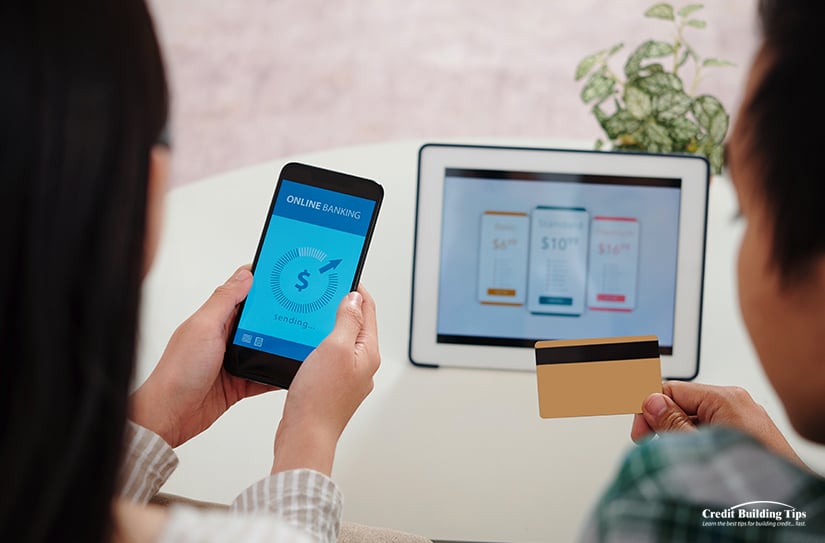
And, since these are relatively new technologies, there isn't much regulation to reduce over-spending or target compulsive spenders.
Whenever a recession or financial crisis rears its head, people go into debt. It's called being underwater, leading to innumerable financial disasters over the decades. Usually, this is related to real estate; if an economic downturn reduces the value of your house, you may end up owing more on it than it's worth.

Moreover, economic recessions typically lead to layoffs, lower wages, and higher prices on necessities. It's even worse when a bubble pops.
Ostensibly, if your identity is stolen and your bank account cleaned out, that money is insured. However, that's not always easy to leverage if bills overdraft an account or cascading repercussions lead to further problems. Even if you get it all sorted out, the stress and time consumption necessary to handle it can lead to other debts.
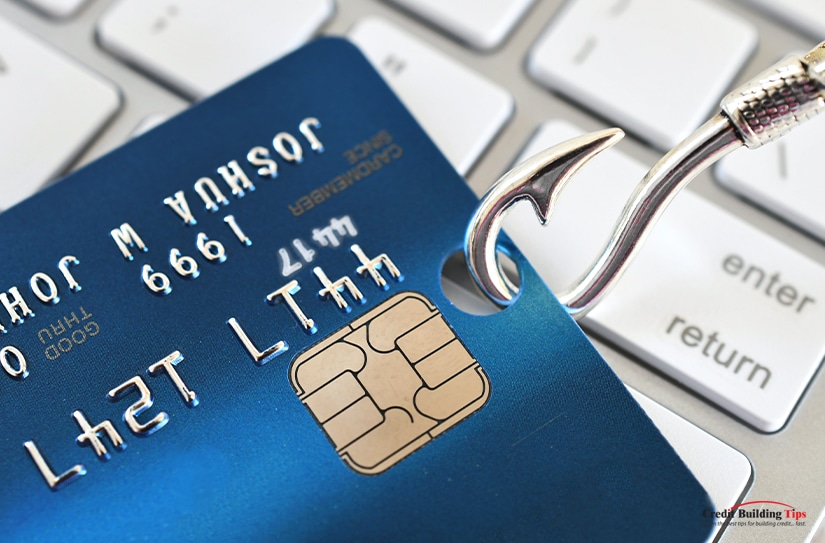
And, of course, physical crime – such as home invasion, a stolen car, a mugging – can all be financially devastating in their own rights.
It's expensive to be poor. If you can't afford a $500 item, but you can afford a $100 version, you'll go for the $100 version. But, if the $500 item lasts 10x as long, you're spending twice as much during the same period. Is it worth going into debt for the more expensive item? Potentially.

This effect can be seen everywhere. Cheaper food is often less healthy and leads to health issues, illness-related loss of income, and medical bills. Public transit is more affordable than owning a car but takes more time. Over and over, the things you must do when you have relatively little money available will cost more over time than the more immediately expensive alternatives.
Debt isn't always bad, and debt is rarely a personal failure, but it's widespread and affects virtually all Americans in some way or another. How you handle your debt will be a big part of your eventual success or failure with financial security over time.
Are you currently struggling with debt? Do any of these items on this list resonate with you, or did any of these help you by avoiding potentially costly monthly payments? Please share in the comments section below this post! We would love to hear your thoughts.